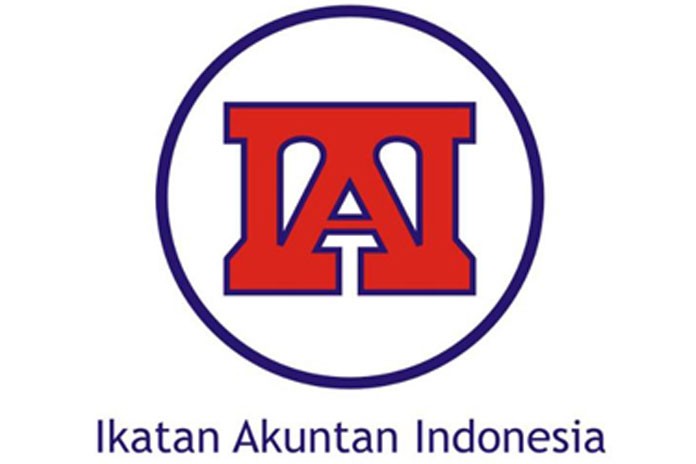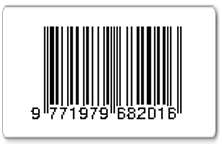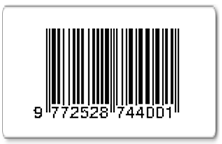PENGARUH KOMITE AUDIT TERHADAP INTEGRITAS LAPORAN KEUANGAN DENGAN WHISTLEBLOWING SYSTEM SEBAGAI VARIABEL MODERASI
Abstract
This study aims to examine the effect of audit commitee on Financial Statement’s integrity. In addition, this study wanted to test whistleblowing policy as a moderating variable on the relationship between audit committee on Financial Statement’s integrity. Independent variables used in this research are audit commitee. Dependent variable used in this research is Financial Statement’s integrity. While the moderation variable used in this research is whistleblowing policy. The sample in this research is banking company with the largest total assets listed on Indonesia Stock Exchange in the period 2014-2016. Analysis of data using multiple linear regression, and to determine the hypothesis used t-test and F-test. The results of this study indicate that audit commitee positively affect Financial Statement’s integrity. Whistleblowing policy is able to moderate the relationship between audit commitee on Financial Statement’s integrity.
Keywords
Full Text:
PDFReferences
Ahmad, Syahrul Ahmar, R. M. Yunos, Raja Adzrin Raja Ahmad, dan Zuraidah M. Sanusi. (2014). Whistleblowing behaviour: The influence of ethical climates theory. Procedia - Social and Behavioral Sciences. Vol. 164: 445 – 450
Burlea, Adriana & Radu, Carmen. (2013). Legitimacy Theory, in Encyclopedia of Corporate Social Responsibility. SpringerVerlag Berlin Heidelberg , pp: 1579-1584.
Chariri dan Imam Ghozali. (2007). Teori Akuntansi. Semarang: Badan Penerbit Universitas Diponegoro.
Dewi, Ni Kadek dan I.Made. (2016). Pengaruh Mekanisme Corporate Governance pada Integritas Laporan Keuangan. E-Jurnal Akuntansi Universitas Udayana, Vol.15.3: 2269-2296.
Financial Accounting Standards Board, 2010. Statement of Financial Accounting Concepts No. 2 Qualitative Caracteristics of Accounting Information. Norwalk, CT: FASB
Freeman, R. E (1984). Strategic Management: A Stakeholder Approach. Boston, Pitman.
Friedman (2006). Structural Interventions: Concepts, Challenges and Opportunities for Research. Journal of Urban Health, Vol.83: 59
Irawati. (2016). Pengaruh dan Kualitas Audit Corporate Governance terhadap Integritas Laporan Keuangan. Jurnal Kompartemen, Vol. 16
Jamaan. (2011). Pengaruh Mekanisme Corporate Governance dan Kualitas KAP terhadap Integritas Informasi Laporan Keuangan. Tesis tidak dipublikasikan. Universitas Diponegoro.
Jensen, M. C and Meckling, W.H. (1976). Theory of the Firm: Managerial Behavior, Agency Costs and Ownership Structure. Journal of Financial Economics, Oktober, 1976, Vol. 3, No.4: 305-360.
Kelman HC. (1966). Compliance, identification, and internalization: Three processes of attitude change. Journal of Conflict Resolution. Vol 2 (1):51-60.
Kesuma. (2014). Analisis Laporan Keuangan Sebagai Dasar dalam Penilaian Kinerja Keuangan PT. Budi Satria Wahana Motor. Jurnal Akuntansi & Keuangan, Vol. 5, No. 1: 93-12.
Komite Nasional Kebijakan Governance. (2006). Pedoman Umum Good corporate governance Indonesia.
McDaniel, L., Martin, R., & Maines, L. (2002). Evaluating Financial Reporting Quality: The Effects of Financial Expertise vs. Financial Literacy. The Accounting Review, 77, 139-167. Retrieved from http://www.jstor.org/stable/3203330
Mohamed (2014). Financial statement fraud risk mechanisms and strategies: the case studies of Malaysian commercial companies. Procedia Social and Behavioral Sciences, Vol. 145: 321 – 32.
Mousa, Gehan. (2015). Legitimacy Theory and Environmental Practices: Short Notes. International Journal of Business and Statistical Analysis, Vol 2, No. 1.
Mutmainnah, Nurul dan Ratna Wardhany. (2013). Analisis Dampak Kualitas Komite Audit terhadap Kualitas Laporan Keuangan Perusahaan dengan Kualitas Audit sebagai Variabel Moderasi. Jurnal Akuntansi dan Keuangan Indonesia, Vol. 10, No. 2: 147 – 170.
Nurjannah, Lita dan Dudi Pratomo. (2014). Pengaruh Komite Audit, Komisaris Independen dan Kualitas Audit terhadap Integritas Laporan Keuangan. E-Proceeding of Management, Vol.1, No.3: 99-105.
Oktadella, D. (2011). Analisis Corporate Governance terhadap Integritas Laporan Keuangan. Universitas Diponegoro. Semarang.
Peraturan Bapepam dan LK No. KEP-643/BL/2012
Penman, S., & Zhang, X. (2002). Accounting Conservatism, the Quality of Earnings, and Stock Returns. The Accounting Review, 77 (2): 237-264.
Puspitaningrum, Sari Atmini. (2012). Corporate Governance Mechanism and The Level of Internet Financial Reporting: Evidence from Indonesian companies. Procedia Economics and Finance, Vol. 2: 157 – 166.
Rahardjo, Eko (2007). Teori Agensi dan Teori Stewardship dalam Perspektif Akuntansi. Jurnal Fokus Ekonomi, Vol. 2 No. 1: 37 ¬ 46.
Zakaria, Maheran. (2015). Antecedent Factors of Whistleblowing in Organizations. Procedia Economics and Finance, 28: 230 – 234.
Zhang, Yan & Jian, Zhou. (2006). Audit Committee Quality, Auditor Independence, and Internal Control Weaknesses, American Accounting Association Annual Meeting
DOI: http://dx.doi.org/10.35448/jrat.v11i2.4260
Refbacks
- There are currently no refbacks.
pISSN 1979-682X eISSN 2528-7443
Jurnal Riset Akuntasi Terpadu (JRAT) is licensed under a Creative Commons Attribution 4.0 International License







